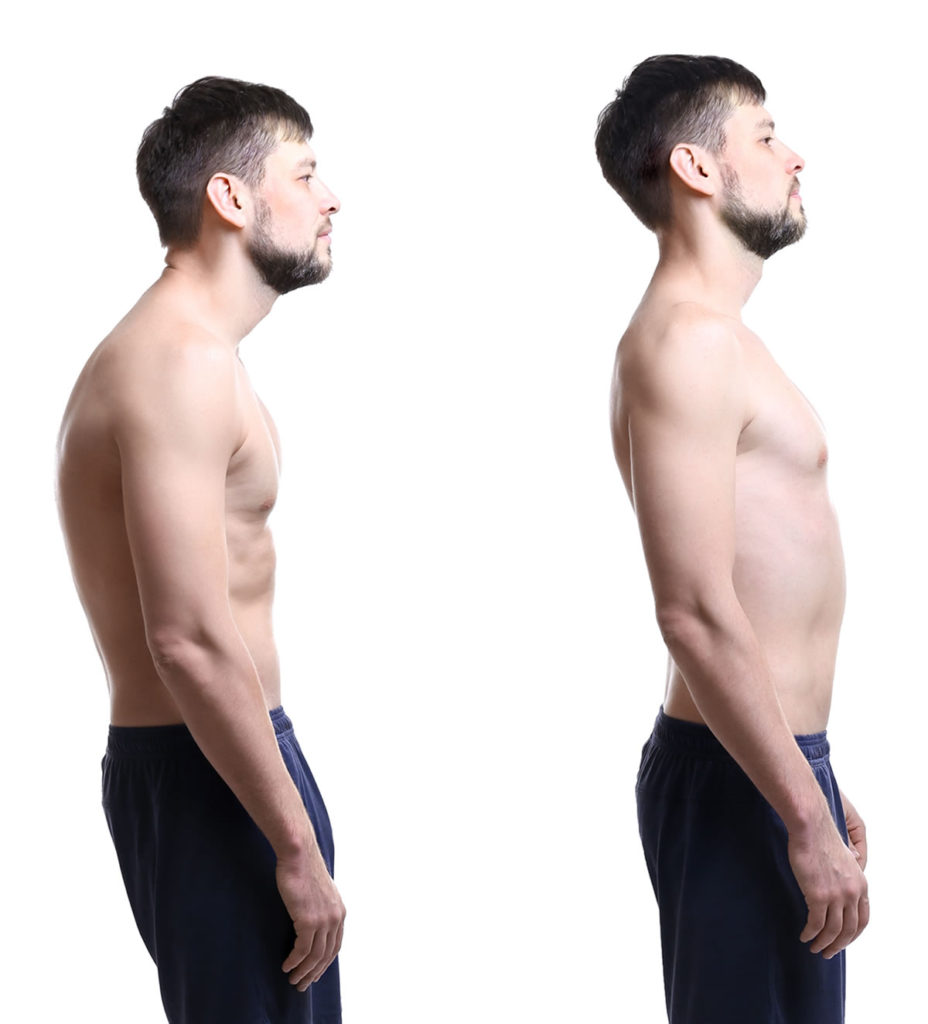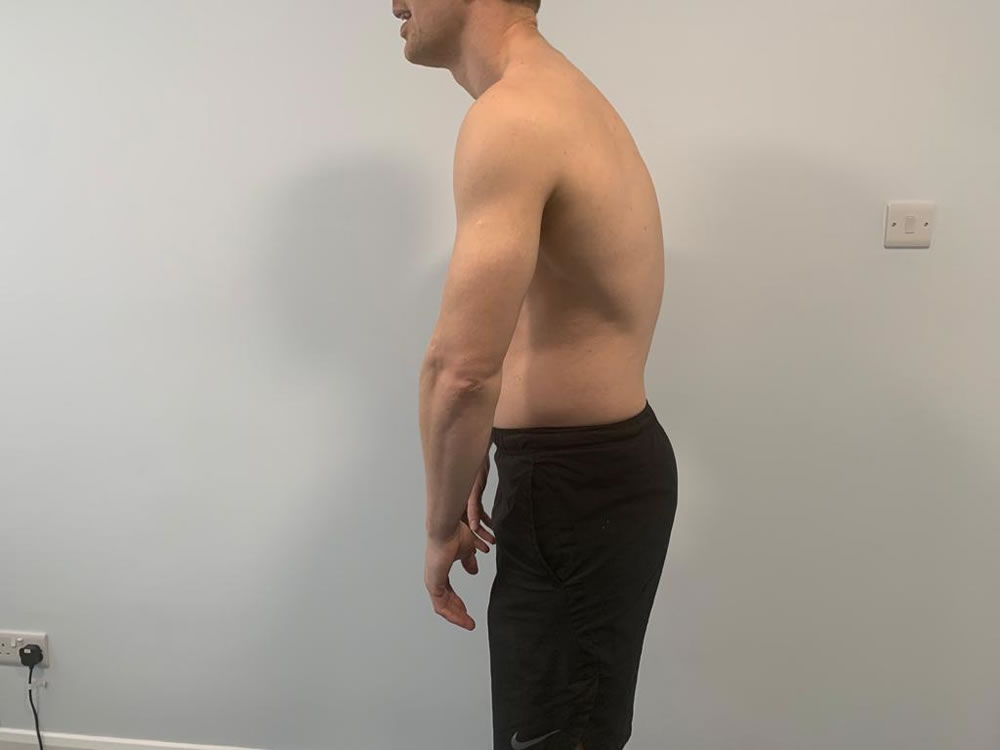Think your posture is causing you pain?
Postural related injuries
Injuries caused by posture are becoming increasingly common as a result of our constantly compromised positions. Today’s use of social media and working demands mean that we are sitting for longer, often stooped over a laptop or hunched up on long commutes. The recent pandemic will compound this problem as larger numbers of people now work from home.
All too often people think it is normal to have pain or stiffness and that it will go away on its own. Sadly, this is not the case as if we continually compound compromised posture, pain will increase until it has to be resolved. Postural injuries are now one of the most common causes of pain we see in our Clinic.

Why is good posture important?
Good posture is a way of doing things with more energy, less stress and fatigue. Without good posture, you cannot really be physically fit. Good posture means your bones are properly aligned and your muscles, joints and ligaments can work as nature intended. It means your vital organs are in the right position and can function at peak efficiency. Good posture helps contribute to the normal functioning of the nervous system.
Some of the major issues which lead to poor posture are:
- Sedentary lifestyle
- Lack of exercise
- Poor driving position
- Poor physical training technique
- High heels.
What causes these pains?
As this was typed I assessed a patient who was on the phone in the waiting room with his neck wedged to the side. His wife was bent over her laptop, typing away. It really is little wonder why neck, shoulder and back pain is so prominent in today’s society. The flexed neck position, rounded shoulders and hunched upper back is a nasty combination that can lead to a number of aches and pains in areas that may not immediately come to mind.
Typically, we associate this poor posture with neck, shoulder or back aches. But what else can it stress?
The brain is directly linked to your nerves and the command centre for your whole body. The spinal cord exits the brain and runs down through the vertebral column, with branches of nerves leaving the spinal cord at each vertebral level to provide sensation and movement to your limbs. The nerves are responsible for muscle contraction, therefore stressing them can lead to muscle dysfunction throughout your body.
The pitfalls of poor posture are regularly reported to include lengthening of your back muscles, shortening of the tissues in the front of your body and slowly creating a stiff, immobile person. This position also places a stretch on the spinal cord itself.
The spinal cord does not like sustained stress so will send signals telling surrounding muscles to contract in an attempt to protect itself. If the ‘stress’ positions are adopted regularly enough, the neural tension can lead to headaches, chronic hamstring tightness and calf cramping, as well as the well documented neck, shoulder and back related discomfort.
It is important to limit this stress and work to mobilise the tissues before we cause a problem.The best way of achieving this is by moving regularly! If you can start exercising, move little and often and with purpose you can often prevent the need for physiotherapy!!
This isn’t the straw that broke the camel’s back but rather the inactive camel who sat for too long and became incapable of carrying any straw at all.
Years of misuse and weakening will eventually take its toll.
What injuries occur due to poor posture?
Shoulder impingement/ Rotator Cuff Related Pain
The joint space in the shoulder joint decreases causing compression to one or more of the tendons. This occurs when the chest muscles become tight and the upper back muscles become elongated and weak, causing the shoulder to sit in a forwards position.
Lower back pain
Can be caused by a wide range of problems which can lead to diffuse lower back pain.
Neck pain
Can be a diffuse pain which can radiate into the shoulders normally caused by working at a desk / computer. It is very easy to fall into a slumped position during a working day. This involves the lower and upper back curving and the neck sitting forward.
Knee pain
Can be a diffuse pain around the front of the knee. It is normally caused by poor gait. The pain is aggravated by walking down stairs or prolonged sitting.
Piriformis syndrome
Also known as sciatica when the pain that radiates down the back of the legs. The piriformis muscle can compress the sciatic nerve leading to the pain, this muscle can be tightened from crossing legs or unbalanced hip muscles.
The way to help yourself is to ensure regular exercise and stretching, so that injuries from overuse or abuse are less likely to occur.

If you would like to know how the team at Recover Physio can help you live your life without postural pain, you can arrange a FREE, no obligation telephone consultation with one of our chartered physiotherapists. Our physio will discuss your symptoms with you and let you know if and how physiotherapy can benefit you. Just click on the link below now to arrange your consultation:
We regularly treat a variety of Postural problems. Do any of the following look familiar?
How can I arrange a physiotherapy assessment?
If you have pain that you think is caused by your posture and you would like to book an appointment or discuss your problem please click on a link below, email us at Reception@recoverphysio.co.uk or call us on 01424 444005
Posture can have a huge impact on your quality of life. Physiotherapy can help improve the quality of your movement and the restoration of function.


